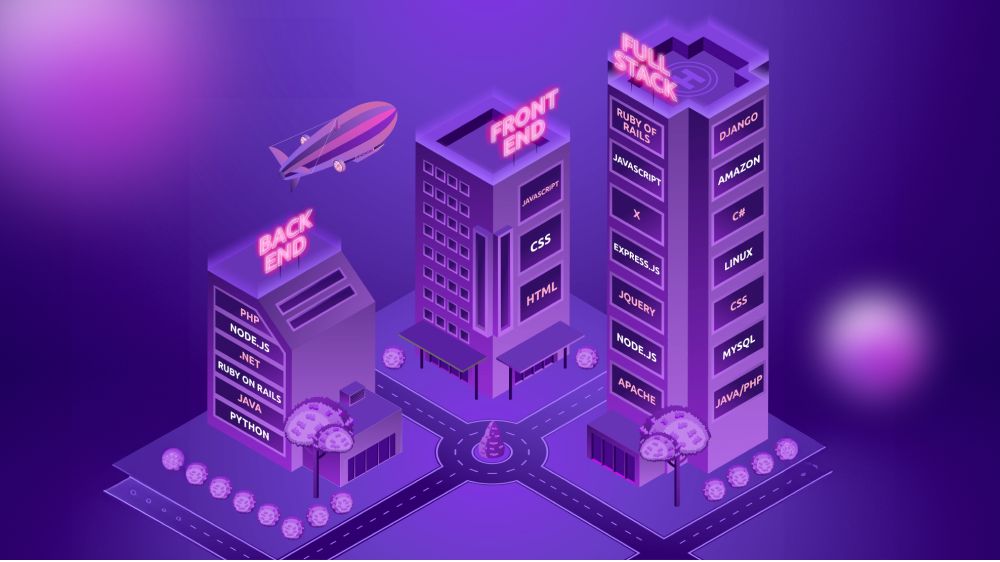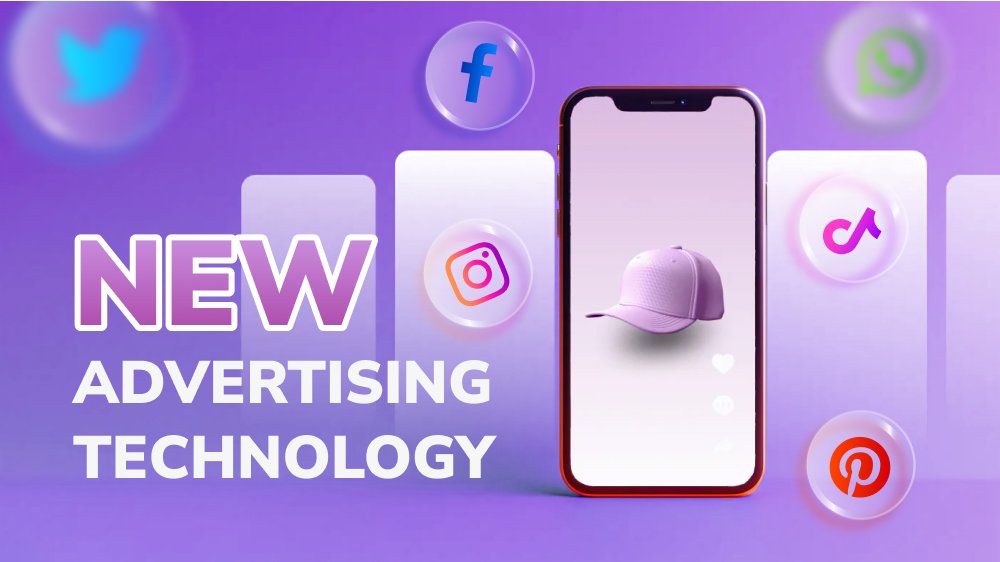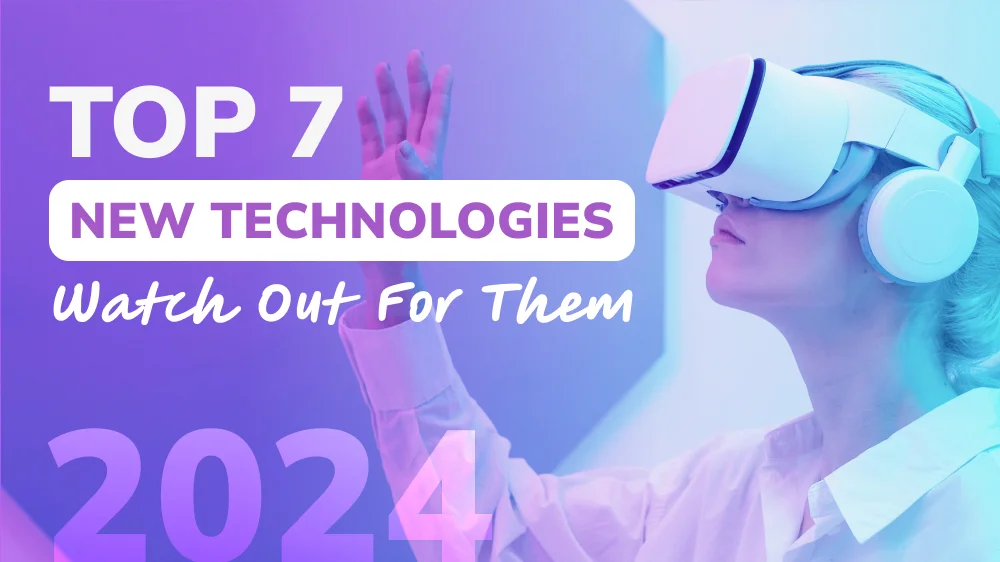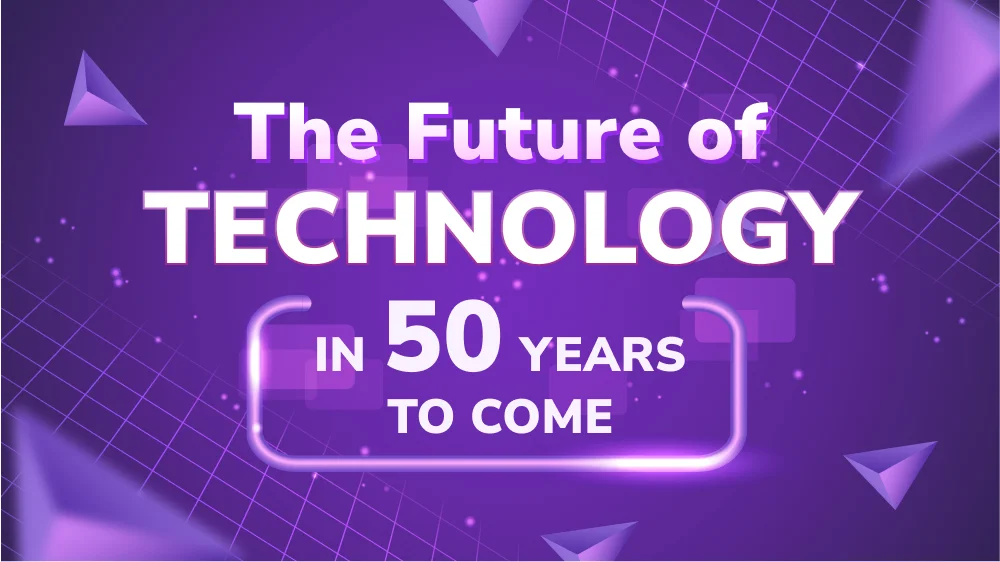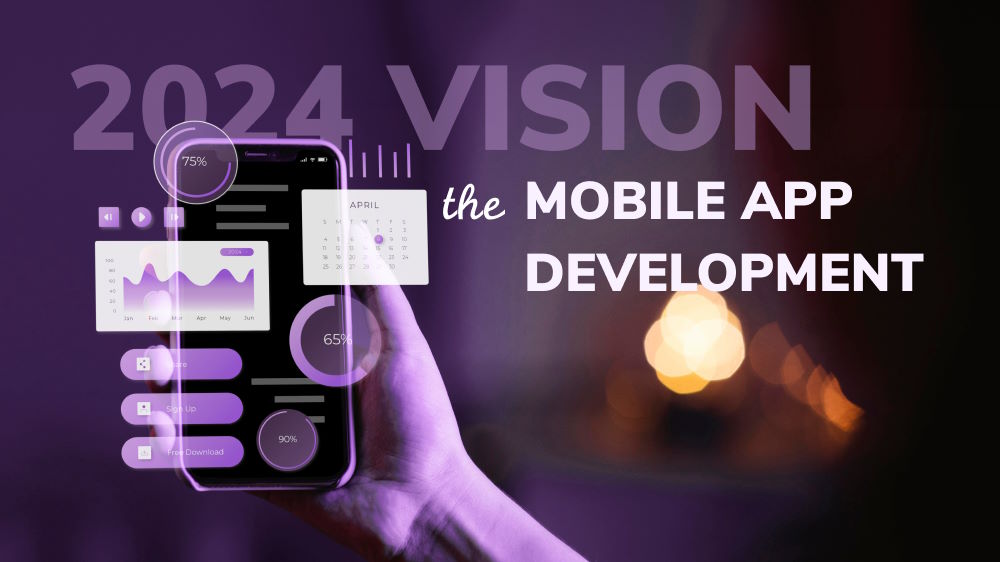A Closer Look at the Latest Hotel Technology Trends
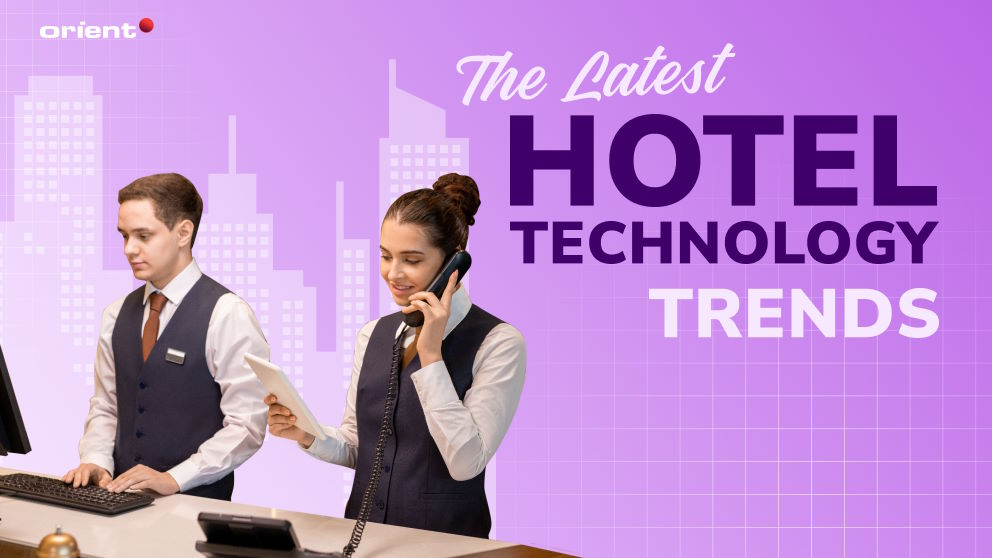
Content Map
More chaptersA cozy and welcoming hotel is undoubtedly an important part of any dream vacation. After all, it is where you rest after hours of traversing and exploring. Did you know that the stay in the hotel itself can be as exciting as your trips? As intriguing as underwater hotels, tree hotels, or ice hotels might sound, we would like to talk about the technologies used in them. The hotel industry has always been known to be dynamic and open to digital transformation.
What hotel technology trends are propelling the industry forward? In this article, we’ll look at the top hotel tech trends that aren’t just improving guest experiences but are also revolutionizing the industry.
Why Is Hotel Technology Becoming Increasingly Important?

In the ever-changing digital landscape, embracing technology opens up new opportunities to better cater to customer’s needs. Technology has also long played a crucial role in the hospitality sector. Its importance has been highlighted due to the following factors as well:
- To Provide Customers with Ultra-personalized Experiences: Cookie-cutter services are no longer good enough. Hotel guests have specific demands and expect hotels to meet them. With the help of technology, hotels can quickly tailor their services to their guests’ preferences.
- Labor Shortages: A survey by the American Hotel & Lodging Association (AHLA) indicates that 87% of hotels said they were facing a staffing shortage, and 36% were experiencing it severely. As a result, hotels are turning to technology to offset this shortage.
- Increasing the Hotel’s Presence: A business’s online presence is crucial in this day and age. Technology helps hotels promote their offerings to a larger audience, including social media and online booking platforms.
All in all, if you are a hotel professional looking to fully reap the advantages of emerging technology or build one to help the industry enter a new era of excellence, staying abreast of the latest technology trends is necessary.
Top Hotel Technology Trends
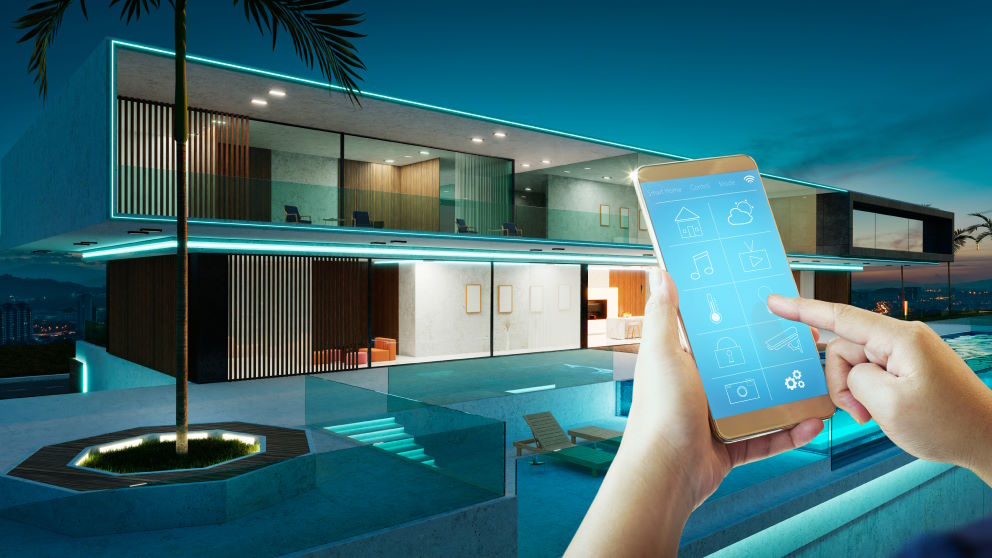
Technology in the hospitality industry can be divided into two categories: those aimed at improving the guest experience and those aimed at streamlining hotel operations.
Trends Aiming at Better Customer Experience
Smart Hotels: Smart Rooms and the Internet of Things
A key role of technology is to provide guests with an ultra-personalized experience. The Internet of Things - a network of devices that use sensors, processing power, software, and other tech to communicate with each other over the Internet or other networks, is the technology that helps you achieve this.
In addition to providing guests with the same technology comfort they experience at home, like high-speed WiFi connections or smart TVs, give your customers the power to control the hotel room at the tip of their fingers.
Instead of paper brochures, you can place a tablet in the room that controls the room’s lighting and temperature and let them order room service or file complaints all through the device. It is a great idea to incorporate voice control to activate services, too. These smart rooms can also automatically detect a customer entering the room or lower power usage to save energy costs.
Mobile Everything: Mobile Booking and Mobile Check-in
A 2022 study reported that the technologies most customers demand are WiFi, contactless payment offers, mobile reservations, and digital signage.
It only makes sense for hoteliers to fully make use of mobile services. The pandemic has had people getting used to mobile check-in for a quick and safe welcome experience after all. This means the hotel’s booking website should be mobile-optimized if they do not have a hotel application of their own. Hoteliers are trying to capture more direct bookings to avoid the high commissions from online travel agencies. If you don’t know how to build a website or hotel booking application, there are credible businesses that can help you with expanding your online presence.
Everything can be done on mobile devices, including contactless check-in and check-out. After long hours of traveling, no guest would enjoy waiting in line to check in their hotel rooms. Hotels have integrated technology, allowing customers to check in and check out on the customer’s own terms. Some hotels, like the Hilton Honors, even provide customers with in-app room keys.
Contactless Payments
Consumer payment preferences have shifted towards mobile payment or digital wallets. In order to remain up-to-date with the ever-evolving trends, hotels must transition to more integrated and contemporary payment processing solutions that accept a variety of contactless payment and mobile payment methods. This integrated payment processing will enable hotels to expedite bookings and reduce the amount of manual reconciliation time.
Translation Devices
As a hotelier, it is only to be expected that international guests will step foot in your facility someday. It is completely unrealistic to expect your staff to learn and be able to converse in multiple languages. Smooth communication is key to a great hotel experience, however. Translation devices are the key to overcoming any language barriers. They are often integrated into hotel services, ensuring a pleasant stay for your international guests. Hotel robots and real-time translation in AR/VR experiences are more examples of translation technology.
Cybersecurity
Hotels handle oceans of sensitive guest data, making them a prime target for cyber attacks. 10.6 million MGM Resorts visitors had their data published online in 2019, and Marriott suffered a data breach involving 5.2 million visitors in 2020. Cyber threats are real and have caused detrimental damage to businesses as well as their reputations.
It’s better to be safe than sorry. As hotels continue to adopt the most up-to-date technology, they must also take security measures to safeguard their guests’ personal data. This necessitates a careful selection of technology tools that offer multi-layered security measures, data protection, secured transactions, and adherence to global payment and data privacy regulations.
Furthermore, hotel personnel must receive regular training on the appropriate handling of personal data, adherence to privacy regulations, for example, the General Data Protection Regulation (GDPR), and the regular modification of access credentials. In this age of rapid technological development, cybersecurity best practices, regular updates to security software, and regular testing and assessment are essential.
Hotel Robots
Many modern hotels have embraced the use of robots. They can be used to provide guests with information about the hotel, perform room housekeeping services, and perform other repetitive tasks like floor disinfections or other errands in the kitchen. While it is unlikely that robots are going to replace humans any time soon, their potential is limitless.
Trends Aiming at Hotel Operational Efficiency
Unified Property Management System
Property management systems (PMS) have been instrumental in the growth and success of hotels since their inception. Technology undoubtedly enhances the customer experience, but it is also highly useful in the context of hotel management.
Hotel property management systems (PMS) are software solutions that provide a comprehensive suite of services to manage the reservation and administrative operations of a hotel. The primary functions of a PMS include the operation of front desks, the management of reservations, hotel properties, housekeeping, occupancy, and the processing of payments.
A cloud hotel PMS includes various modules to help streamline and automate the hotel’s administrative tasks and workflow.
Artificial Intelligence
Artificial intelligence software like ChatGPT has taken the world by storm. It has been proven to produce interesting and surprisingly natural results based on a provided prompt.
In hotel services, AI is utilized in chatbots to answer frequently asked questions, recommend personalized guest services, send post-stay surveys, and streamline the booking process. It also automates repetitive tasks, giving hotel staff the time and space to focus on other core activities.
AI is often utilized alongside other technologies like IoT, robots, or data analytics.
Revenue Management System
A hotel’s pricing plan is built on a revenue management system. It is intelligent software that automates necessary revenue management processes to reduce time spent and boost effectiveness.
After collecting data like market supply, demand, competitor rates, historical rates, market dynamics, and inventory levels, it generates rate recommendations. Most RMS do this process automatically and try to suggest a rate that maximizes revenue and profitability.
Renewable Energy
The hotel sector is one of the most energy-intensive industries in the world. Consequently, the cost of water and energy is often prohibitive. As a result, hotels have sought to reduce their energy consumption in order to improve their sustainability and operational efficiency.
Not only are green initiatives sustainable, but guests are also happy to pay more for them. Statista has found that 60% of the respondents answered yes when asked if they are willing to pay more for eco-friendly rooms in the US.
Examples of sustainable practices involve solar panels, using energy-efficient lighting, low-flow faucets and showerheads, etc. Smart hotel technology, like IoT devices, is also part of sustainable practices.
Data Analytics
Hotel systems produce massive amounts of data on a daily basis. This ranges from reservation information in the primary property management systems (PMS) to order information in the point of sale (POS) to email engagement data in the CRM system (Customer Relationship Management). Unfortunately, much of the collected data is left unused.
With proper data analytics techniques, this data can turn into actionable insights. For example, hoteliers can detect certain patterns and trends that would have been otherwise overlooked. From there, hotel owners can continue to refine their marketing campaigns, offer personalized offers for customers, and enhance customer satisfaction.
Are You up to Speed?

Technology has always been at the forefront of the hotel industry. It’s only getting more important. In fact, it’s on the cusp of revolutionizing the entire industry. Whether it’s contactless, self-check-in, or data analytics for better strategies, technology is everywhere and playing an ever-increasing role.
If you are ready to put time and effort into building a website or application that can easily scale and grow alongside your business, why not start by talking to a professional service like Orient Software’s custom software development solution? Just let us know what you are looking for, and our seasoned team of experts will help you turn your vision into reality.

